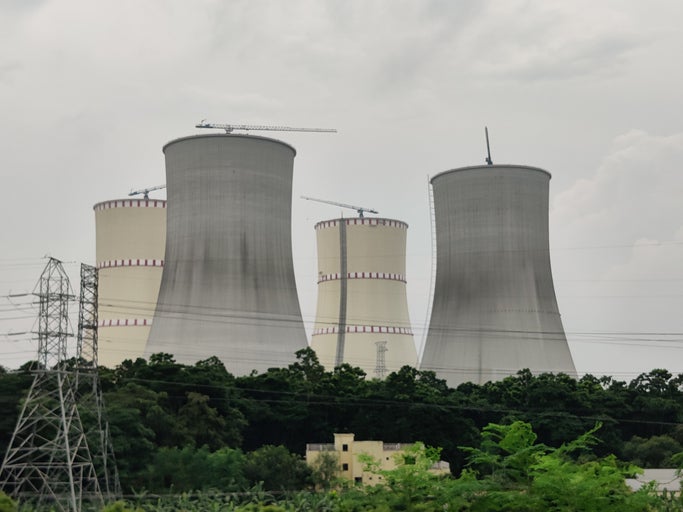
Bangladesh has received its first delivery of nuclear fuel, meaning the nation has officially joined the world’s ‘nuclear’ countries.
In November 2017, construction began on the Rooppur nuclear plant 160km from the capital, Dhaka. The plant features two Russian VVER-1200 reactors; construction of the first unit began in November 2017 and it is scheduled to be commissioned in 2024. Construction of the second unit began in July 2018. Russian company Rosatom is running the project, which will have an initial life cycle of 60 years, with a further 20-year extension possible.
Alexei Likhachev, director of Rosatom, said: “This day marks a new stage in the development of Russian-Bangladeshi relations. For Rosatom, it is a great honour to implement a project which will ensure stable power supply and will help to preserve the unique nature of Bangladesh future generations.”
Russian President Vladimir Putin attended the ceremony held to celebrate the announcement, which was held via weblink. In a speech he noted the close ties between Bangladesh and Russia. He also said that once the plant was at full capacity it would supply around 10% of Bangladesh’s energy needs, while doing so in an environmentally friendly way.
Bangladesh is investing in power and energy
In Bangladesh, 85% of the population has access to electricity, up from 20% in 2000. Gas still accounts for most of the country’s electricity production despite the share of wind, hydropower and solar power increasing. Overall electricity demand is rising rapidly. In 2009 capacity was 5GW, but it had risen to 25GW by 2021. Around 5% of government expenditure is being allocated to power and energy.
On the nuclear development, World Nuclear Association director-general Sama Bilbao y León said this “represents a significant contribution to helping Bangladesh reach its carbon emission reduction targets whilst strengthening energy security and reliability. The significance of this moment extends beyond Bangladesh – with the global nuclear community committed to accelerating new build projects, the Rooppur power plant is a powerful symbol of this shared commitment.”

US Tariffs are shifting - will you react or anticipate?
Don’t let policy changes catch you off guard. Stay proactive with real-time data and expert analysis.
By GlobalData


